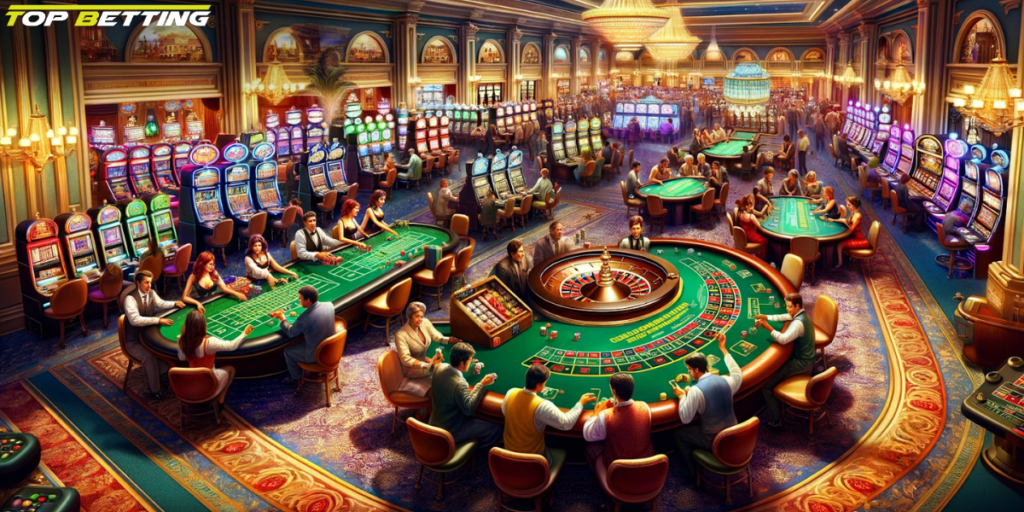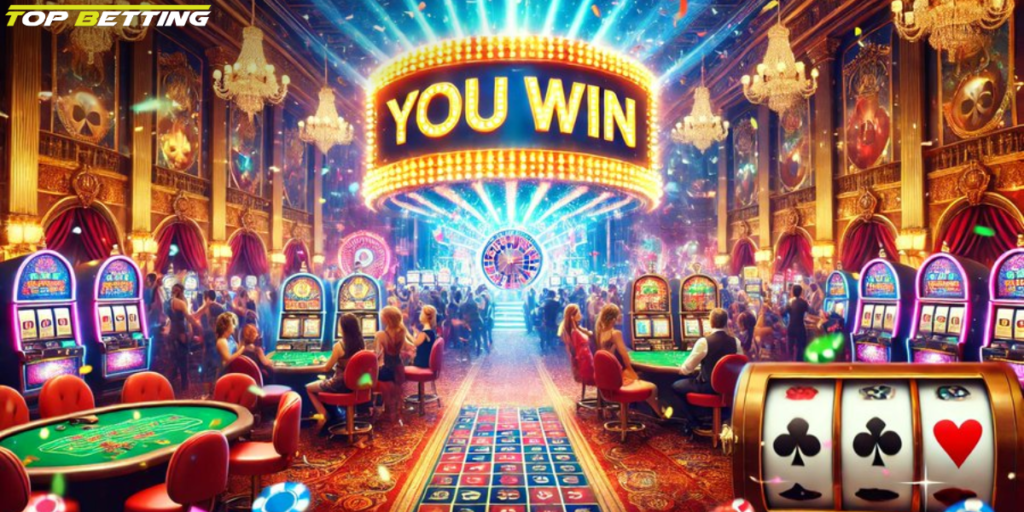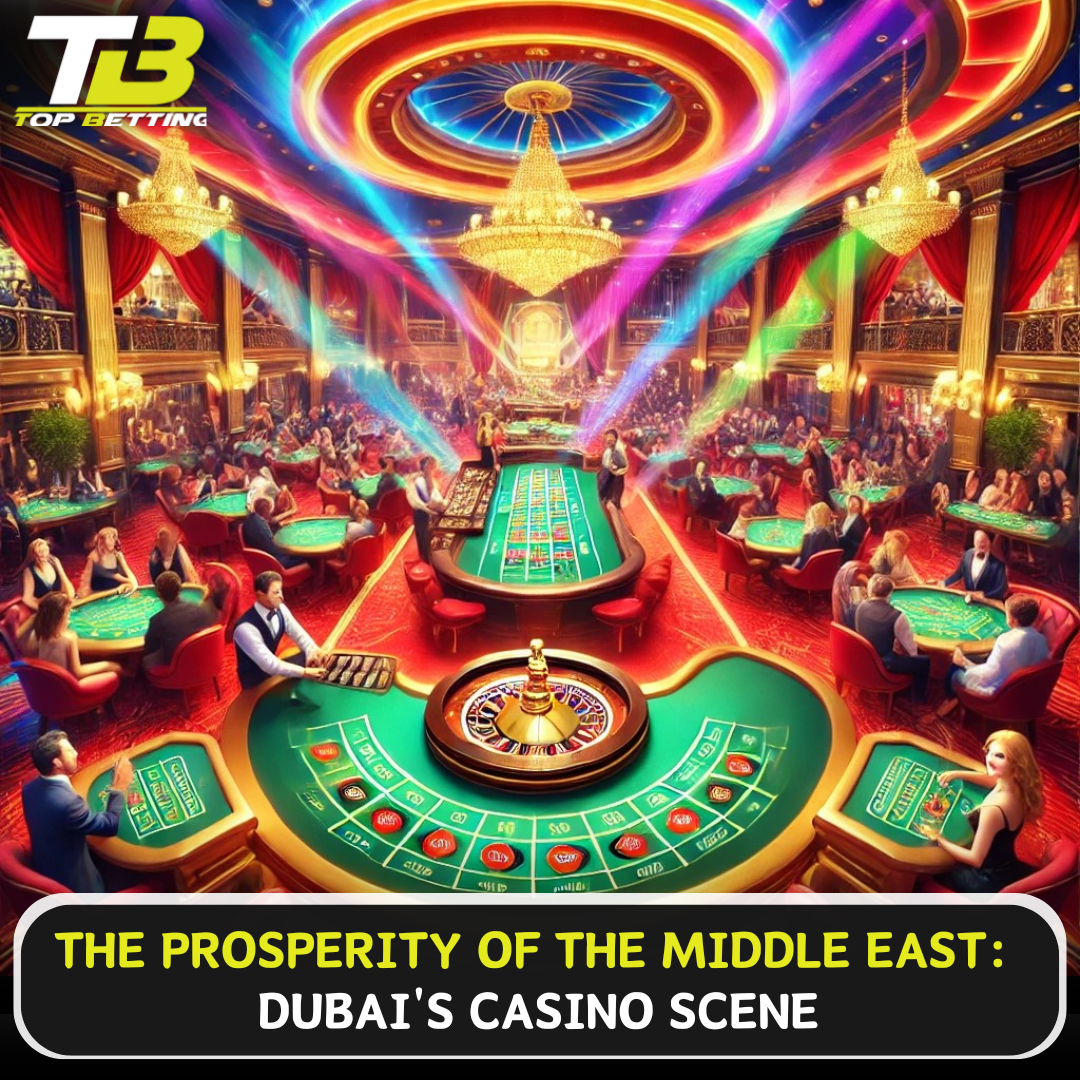
The Prosperity of the Middle East Dubai Casino
Dubai, one of the Middle East’s most iconic cities, is renowned for its luxurious lifestyle, tall skyscrapers, and world-class shopping experiences. However, when it comes to gambling and casinos, Dubai presents a unique case due to its strict adherence to Islamic laws, which prohibit all forms of gambling.
Despite this, Dubai has found innovative ways to serve tourists and residents seeking a thrilling, high-stakes experience without violating local laws. This article discusses Dubai’s unique approach to the casino game scene, exploring gambling options and future prospects in this opulent metropolis.
Dubai, renowned for its opulence, futuristic skyline, and world-class attractions, has steadily grown as a global tourism and business hub. While the Middle East has traditionally been conservative regarding gambling, Dubai’s evolving landscape reflects a unique blend of cultural preservation and modern indulgence. The city’s approach to integrating casino entertainment into its luxurious hospitality sector highlights its adaptive economic strategies and commitment to offering diverse recreational options to its international visitors.
The Rise of Casino Entertainment in Dubai
Dubai’s casino scene is relatively nascent compared to established gambling hubs like Las Vegas or Macau. However, the emirate is strategically positioning itself to tap into this lucrative market. The concept of casinos in Dubai is largely tied to its expansive luxury resorts, where gaming areas are designed to provide an exclusive experience that aligns with Dubai’s reputation for high-end tourism.
Regulatory Framework
Dubai operates under the United Arab Emirates’ (UAE) federal laws, which traditionally impose strict regulations on gambling. However, the UAE has shown a willingness to adapt and evolve its regulatory frameworks to bolster tourism and economic diversification. This includes carefully considering the introduction of regulated gaming spaces within its hospitality sector, ensuring that these establishments adhere to international standards while respecting local cultural norms.
Key Players and Venues
The potential growth of casino entertainment in Dubai has attracted interest from some of the world’s leading gaming and hospitality companies. Resorts such as Atlantis, The Palm, and Caesars Palace Bluewaters Dubai are at the forefront, offering not just luxurious accommodations and entertainment but also laying the groundwork for sophisticated gaming areas. These venues are poised to provide a mix of traditional casino games such as blackjack, roulette, and poker, tailored to an elite clientele.
Economic Impact
The introduction of casinos in Dubai is expected to significantly boost the local economy. This new entertainment avenue will attract a diverse array of tourists, including high rollers and gaming enthusiasts, further solidifying Dubai’s status as a global leisure destination. The revenue generated from casino operations can be reinvested into the city’s infrastructure, tourism development, and public services, fostering overall economic growth.
Cultural Sensitivity and Integration
Dubai’s casino scene is being developed with a keen awareness of cultural and religious sensitivities. Efforts are made to ensure that these establishments operate discreetly within luxury resorts, providing an exclusive experience for international visitors while minimizing exposure to the local populace. This balance ensures that Dubai can offer world-class entertainment without compromising its cultural values.
The Legal Landscape
Dubai operates under Sharia law, which explicitly prohibits gambling. As a result, traditional casinos, where rows of slot machines and poker tables can be found, do not exist. This legal restriction stems from the religious and cultural norms that form the backbone of the United Arab Emirates (UAE). However, the government has always been adept at balancing these traditions with the need to attract international tourists and expatriates who come from diverse backgrounds and have varying entertainment interests.
Alternatives to traditional casinos
Despite the absence of traditional casinos, options abound that offer similar thrills and excitement. Dubai’s many luxury hotels and resorts offer world-class entertainment and leisure activities that cater to a high-end clientele. These venues often have exclusive private gaming rooms where patrons can play poker or other card games in a controlled, invitation-only environment. Although these are not public casinos, they offer a similar experience for those in the know.
Horse racing and camel racing
Dubai has a rich tradition of horse racing and camel racing, both of which are extremely popular and attract significant betting activity. Meydan Racecourse is a prime example of this, hosting the prestigious Cup, one of the richest horse races in the world. Although betting is not technically permitted, visitors can place private bets within specific limits, making it an exciting alternative to traditional gambling.
Online Gambling
Online gambling is a grey area in the landscape. Despite being technically illegal, many residents and visitors use offshore online casinos and betting sites. These platforms are accessible via a virtual private network (VPN), allowing users to bypass local restrictions. Although risky due to potential legal repercussions, online gambling remains a popular option for those seeking a casino experience.
Lotteries and Raffles
Dubai frequently hosts lotteries and raffles, especially around major events and holidays. The Millennium Millionaire and Finest Surprise draws are notable examples, offering participants the chance to win luxury cars or substantial cash prizes. Despite not being traditional gambling, these events provide an exciting and legally acceptable alternative.
Economic Impacts

Attitudes towards gambling and casinos have significant economic implications. By taking advantage of alternative forms of gambling and gaming, the city continues to attract tourists and expatriates, contributing to its economy without compromising its cultural and religious values. The hospitality and entertainment sectors, in particular, benefit from the influx of high-spending tourists looking for a luxury experience.
The future of gambling in Dubai
The future of gambling in Dubai is the subject of much speculation. As the city continues to develop and modernise, there is debate over whether the government might relax its strict gambling laws. A number of factors could influence this potential change.
Possible regulatory framework
Ensuring that only reputable operators enter the market will be crucial. Licences should be granted based on stringent criteria, including financial stability, commitment to responsible gambling and compliance with local laws.
Responsible gambling measures
To minimise the risks associated with gambling, such as addiction and financial hardship, Dubai will need to implement strong responsible gambling measures. This could include setting betting limits, providing support services for problem gamblers and conducting regular audits of gambling operators.
Legal enforcement
Effective enforcement mechanisms will be essential to prevent illegal gambling activities and ensure compliance with regulations. This could include the establishment of a dedicated regulatory body with the power to oversee and regulate the industry.
Social implications
The introduction of legal gambling will have several social implications:
Entertainment and leisure: Legal casinos can become new centers of entertainment and leisure, offering not only gambling, but also food, shows, and other attractions.
Potential risks: Gambling can lead to addiction and financial distress for some individuals. Comprehensive support systems and public awareness campaigns will be necessary to address these issues.
Case studies and comparisons
Taking a look at other regions that have successfully integrated gambling into their economies can provide valuable information:
Singapore: Despite its conservative stance, Singapore legalized casino gambling in 2005. The city-state implemented strict regulations and responsible gambling measures, which allowed it to benefit economically while minimizing social issues.
Macau: As the world’s largest gambling hub, Macau shows the immense economic potential of casinos. However, it also highlights the importance of balancing growth with effective regulation to prevent problems such as money laundering.
Tourism Development
Dubai’s tourism sector is a vital component of its economy. As competition with other global cities increases, pressure to diversify entertainment options to attract more visitors may increase. Legalizing and regulating gambling could provide a significant boost to tourism revenue.
Economic Diversification
The UAE is actively working to diversify its economy away from oil dependence. Legalizing gambling could be part of broader economic reforms aimed at creating new revenue sources and employment opportunities. A regulated casino industry could attract significant foreign investment and create many jobs.
Cultural Shift
While Dubai is deeply rooted in Islamic traditions, it is also a cosmopolitan city with a large expatriate population. Over time, cultural attitudes toward gambling may change, especially among the younger generation and expatriates who are more accustomed to such activities.
Potential Challenges
Legalizing gambling in Dubai will not be without challenges. Several factors will need to be carefully considered.
Religious and cultural sensitivities
Gambling is fundamentally contrary to Islamic teachings. Any move towards legalisation would need to take into account complex religious and cultural considerations to ensure it does not alienate the local population or undermine the UAE’s Islamic identity.
Regulation and enforcement
Establishing a regulated casino industry will require strong legal and regulatory frameworks to prevent issues such as money laundering, problem gambling and other related risks. Ensuring effective enforcement will be crucial to maintaining the integrity of the industry.
Social implications
Gambling can have significant social implications, including addiction and financial hardship. Addressing these potential issues through education, support programmes and responsible gambling measures will be essential to minimising the negative impacts on society.
Conclusion

Dubai’s casino scene is a fascinating study in the balance of tradition and modernity. While traditional gambling is restricted, the city offers a variety of alternative experiences for thrill-seekers and high-rollers. As Dubai continues to grow and develop, the potential for changes to gambling laws remains a topic of interest.
However, any such changes will need to be carefully managed while respecting the city’s cultural and religious heritage, while also embracing the economic and social benefits that a regulated casino industry can bring. For now, Dubai’s unique approach to gambling reflects its broader strategy to blend innovation with tradition to create a world-class destination for visitors from around the globe.











